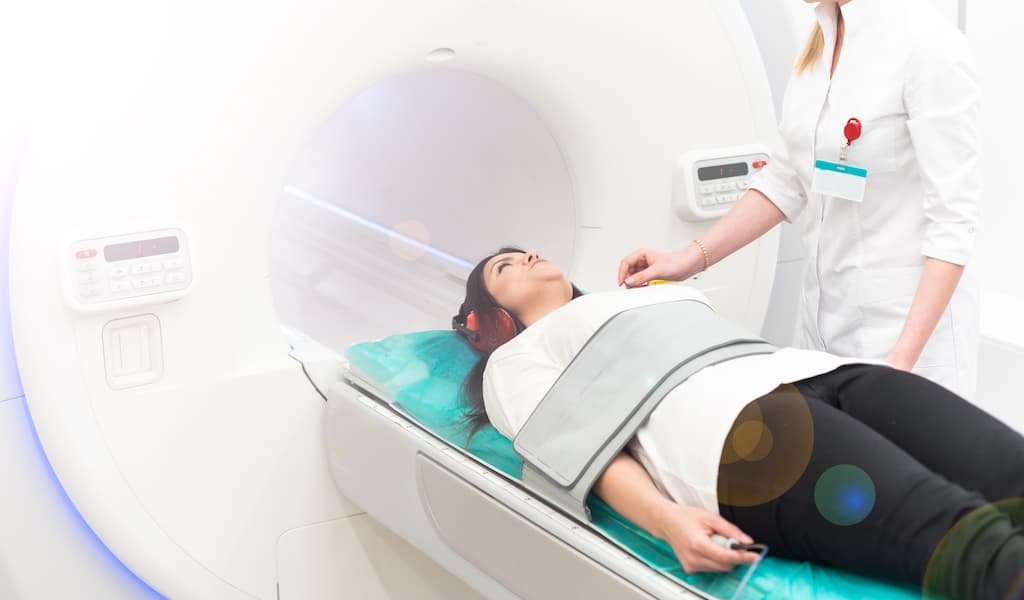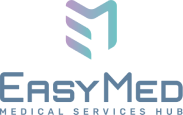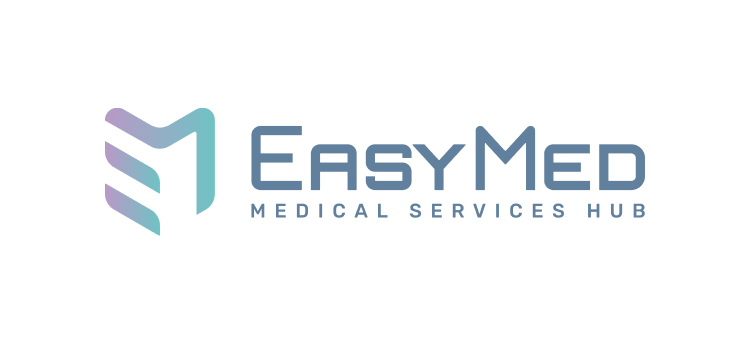
Magnetic resonance imaging of the abdomen
Magnetic resonance imaging of the abdominal cavity is a modern non-invasive diagnostic method that allows you to obtain accurate and detailed images of the internal organs of the abdominal cavity. This procedure is important for diagnosing and treating various diseases affecting the abdominal organs, including the liver, pancre
Дополнительные процедуры:
- Лабораторный анализ мочи
- Элемент списка #2
- Элемент списка #3
MRI of the abdomen with EasyMed
At EasyMed, we offer assistance in arranging abdominal MRI in advanced medical centers in Israel. We carefully select clinics, focusing on each case’s individual needs and urgency. Our specialists take care of all stages of the procedure, from choosing a clinic to obtaining and interpreting the results.
Our team of professionals ensures that every step, from application to results, is organized with the utmost care for the patient’s health and comfort, providing access to high-quality medical care.
What does an MRI of the abdomen show?
Magnetic resonance imaging (MRI) of the abdominal cavity is a highly accurate diagnostic method that allows you to assess the condition of the internal organs and tissues of the abdominal cavity. This procedure is especially important for detecting a variety of diseases and pathologies, including:
- Liver diseases: Tumors, cirrhosis, hepatitis, and other liver lesions.
- Pancreatic pathologies, including tumors and inflammatory processes.
- Diseases of the kidneys and urinary tract: cysts, stones, tumors, inflammatory processes.
- Diseases of the gallbladder and biliary tract: Cholecystitis, cholangitis, cholelithiasis.
- Bowel diseases, including inflammatory diseases such as Crohn's disease and tumor processes.
- Pathologies of abdominal vessels: Aortic aneurysms, vascular lesions.
Organs examined:
- Liver
- Pancreas
- Kidneys and urinary tract
- Gallbladder and biliary tract
- Intestines (small and large intestines)
- Spleen
- Aorta and other large vessels of the abdominal cavity
MRI of the abdomen provides a comprehensive picture of the health of the internal organs, which is critical for effective diagnosis and treatment planning.
Indications for MRI of the abdominal cavity
Magnetic resonance imaging of the abdomen is a key procedure for detecting and evaluating various diseases and conditions in the abdominal area.
Indications for abdominal MRI include:
- Vague pain and discomfort in the abdomen.
- Suspected diseases of the liver, gallbladder and biliary tract.
- Assessment of the pancreas and spleen.
- Examination of the kidneys and adrenal glands.
- Diagnosis of tumors and cysts in the abdominal organs.
- Suspected inflammatory bowel disease, including Crohn's disease and ulcerative colitis.
- Assessment of the condition of the blood vessels of the abdominal cavity.
Important! A complete history and a doctor’s referral must be provided before the abdominal MRI procedure. This will allow radiologists to choose the optimal scanning parameters and provide the most accurate diagnosis, taking into account the patient’s individual characteristics.
Preparation for the procedure
Preparation for an MRI of the abdominal organs includes several important steps:
- Before the procedure, the patient must remove all metal jewelry, including the watch and piercing. It is also necessary to remove all metal items of clothing.
- If the patient has removable medical devices, such as hearing aids or dentures, they should be removed.
- It is necessary to provide the doctor with all available medical documentation, including the results of previous examinations.
- The patient should inform the doctor about all diseases, allergies, especially to contrasts, if any will be used in the procedure.
- In the case of an MRI of the abdomen with a contrast agent, specific preparation may be required, including dietary restriction before the procedure.
Importantly! Before the MRI procedure, patients will be further inform by EasyMed specialists about the necessary actions and restrictions to ensure the safety and accuracy of the diagnostic process.
The process of MRI of the abdominal organs
The abdominal MRI procedure begins with the registration and preparation of the patient. All clothing and jewelry containing metal, as well as removable medical devices, must be removed. In the case of using a contrast, the patient may be offered medical clothing for the procedure.
Next, the patient lies on a movable table, which is moved inside the MRI machine, where the scan is provided. A standard MRI of the abdomen takes approximately 30 to 45 minutes. During this time, it is important to remain still for clear images.
While using the contrast, the procedure may take longer, and the contrast agent is injected intravenously.
After the scan, the patient can leave the clinic if no further follow-up is required.
The entire process, including preparation and the scan itself, usually takes between 1 and 1.5 hours. Patients who come to EasyMed receive accelerated access to the procedure and full support at all stages.
MRI of the abdominal organs with contrast agent
Magnetic resonance imaging of the abdomen with contrast is an advanced diagnostic method that provides a more detailed examination of the abdominal organs. The procedure uses a contrast injected intravenously, improving the visualization of internal structures.
Contrast MRI of the abdomen is recommended in the following cases:
- For a detailed study of tumors, including detecting malignant neoplasms and assessing their spread.
- If inflammatory diseases and infections of internal organs such as pancreatitis or hepatitis are suspected.
- To assess the condition of the liver, gallbladder, pancreas, and other abdominal organs.
- In examining vascular pathologies, including thrombosis and aneurysms of the abdominal aorta.
Important! Before undergoing an MRI with contrast, it is important to inform your doctor about any allergic reactions to contrast agents or other contraindications. EasyMed provides full support and advice on preparing for MRI with contrast, ensuring the comfort and safety of patients.
Contraindications
Contraindications to MRI of the abdominal organs are divided into relative and absolute. Patients should be aware of these limitations before the procedure. Our experts will provide detailed information and answer your questions when making an appointment for an MRI.
Relative contraindications:
- Claustrophobia: Discomfort in patients with a fear of confined spaces.
- Pregnancy: Especially in the first trimester, because of the potential risk to the fetus.
- Cochlear implants: Depending on the type, they can be sensitive to a magnetic field.
Absolute contraindications:
- Electronic implants: Pacemakers that can be disrupted by a magnetic field.
- Metal implants: Risk of overheating or displacement during the procedure.
- Body Weight Restriction: The maximum weight for most MRI machines is 150-200 kg.
In MRI with contrast:
- Allergy to contrast: Notifying your doctor of any allergies is important.
- Impaired kidney function: the contrast is excreted through the kidneys, so their malfunction may be a contraindication.
Safety of the procedure
Magnetic resonance imaging of the abdominal organs is a safe and non-invasive diagnostic method that does not involve ionizing radiation. Unlike X-rays and CT scans, MRI is based on using a magnetic field and radio waves, eliminating the risks associated with radiation exposure.
The frequency of abdominal MRI is determined individually depending on the medical indications and the patient’s state of health. In cases of chronic illness or to assess the effectiveness of treatment, regular check-ups may be required. However, specific recommendations on the frequency and necessity of repeated procedures should always be given by the attending physician, taking into account the individual characteristics and needs of the patient.
Benefits of choosing EasyMed
EasyMed offers its clients a valuable service in the selection of clinics in Israel for MRI of the abdominal organs, ensuring the process’s efficiency and convenience. This is especially important if you need a quick diagnosis in order to start treatment as soon as possible.
Cooperation with EasyMed saves clients time searching for a clinic and avoids long waits. We provide full support at all stages – from applying to receiving the examination results, taking into account each client’s individual needs.
Want to make an appointment for a review?
Fill in the following details
and we will contact you as soon as possible
Faq
Frequently asked Questions
We provide personalized healthcare services. Our main goal is to provide you with a quick appointment for the necessary medical examination or consultation with a doctor.
There is no need to wait several months: with us you will get to the right specialist in the shortest possible time.
Waiting times depend on the complexity of the procedure and the doctor’s profile. We can make an appointment with some specialists within 24 hours. For complex procedures, the waiting period of which reaches several months, you will be treated with us within 2-3 weeks.
There are a number of procedures (for example, complex types of MRI) that the patient can wait about a year and a half. We can reduce this period to 3 months.
We cooperate with leading specialists in various fields, as well as with top clinics and laboratories throughout Israel and abroad.
Our doctors use the latest treatment protocols and the most advanced technologies. The clinics we work with are equipped with modern equipment that provides the most accurate results.
Our partners are experienced professionals who have earned trust due to their experience, knowledge and professionalism.
We operate in all regions of Israel. Your appointment will be scheduled at the location most convenient for you.
The cost of services depends on the complexity of the procedure and the doctor’s profile. For accurate information and cost calculation, leave your details or call: 033083020
Yes, absolutely. Confidentiality and protection of our clients' personal information is one of our key priorities. We strictly adhere to all legal and ethical standards to ensure the maximum security of your data.
Our specialists will check whether in a particular case a refund from the insurance company is due. If yes, then after completing the procedure, a receipt will be sent to the insurance agent, who, in turn, makes a request to the insurance company to return the amount due to the patient for the procedure completed.



